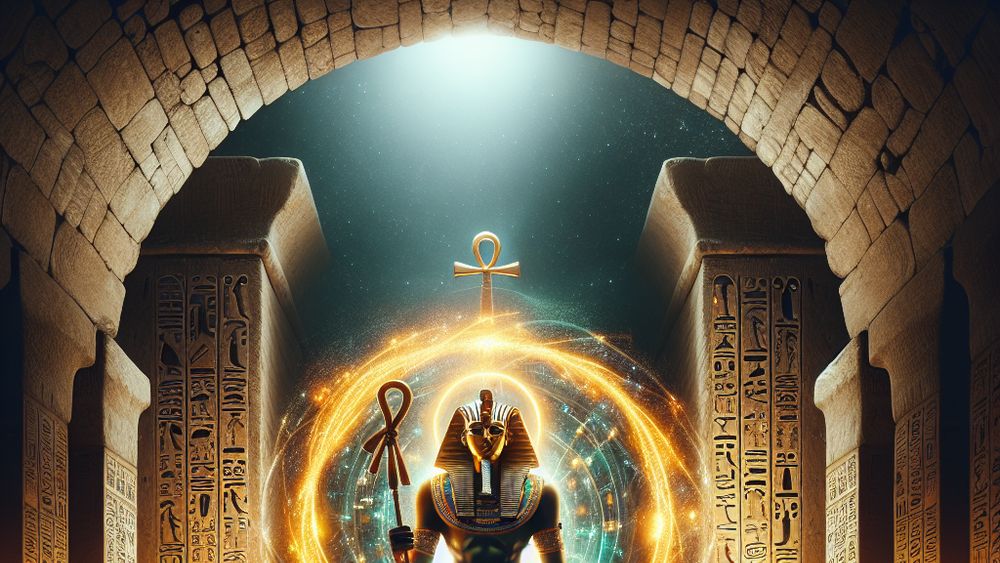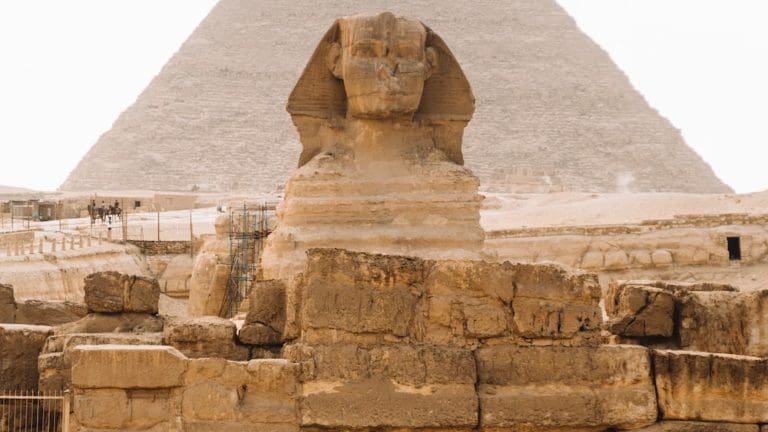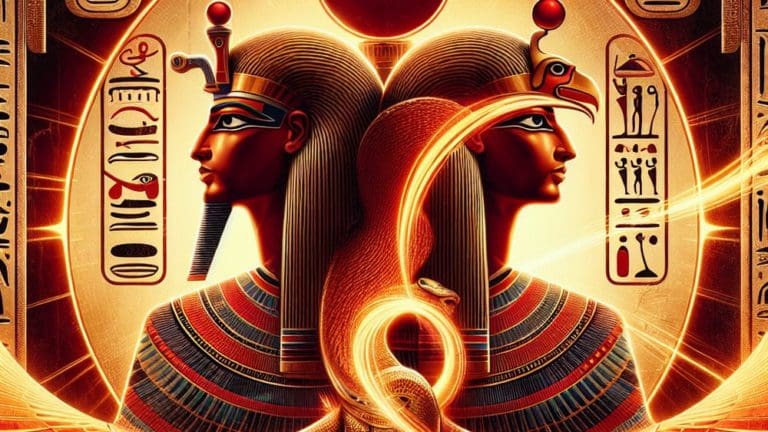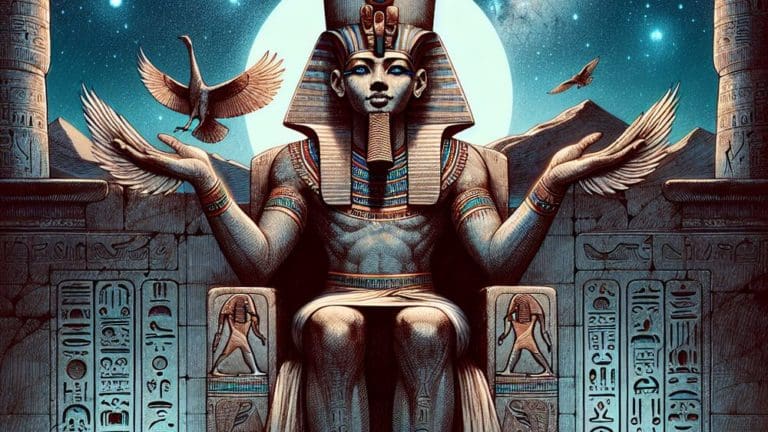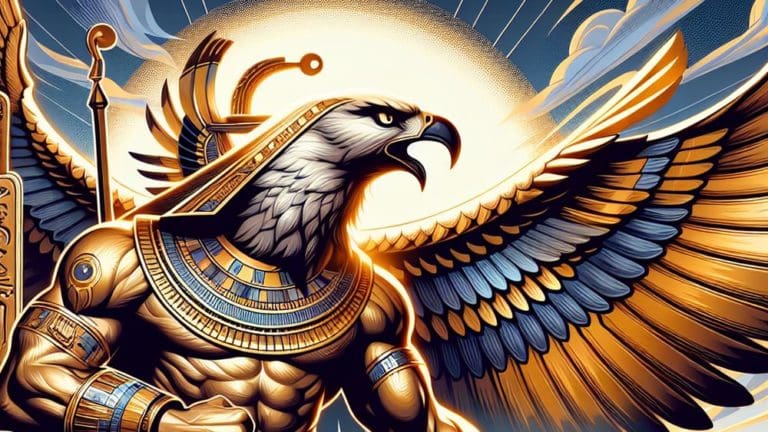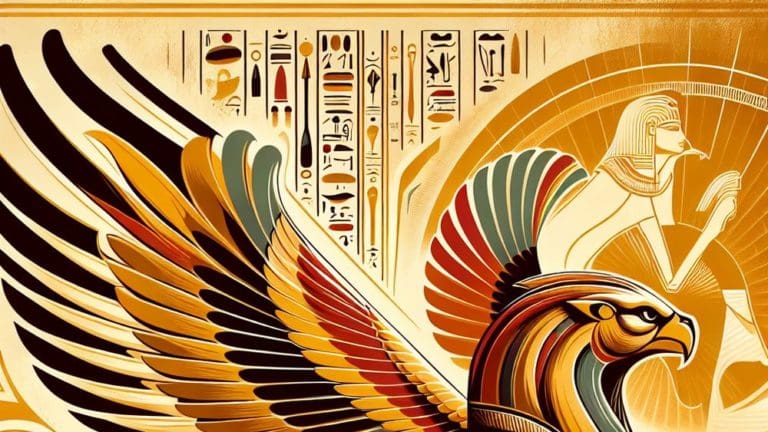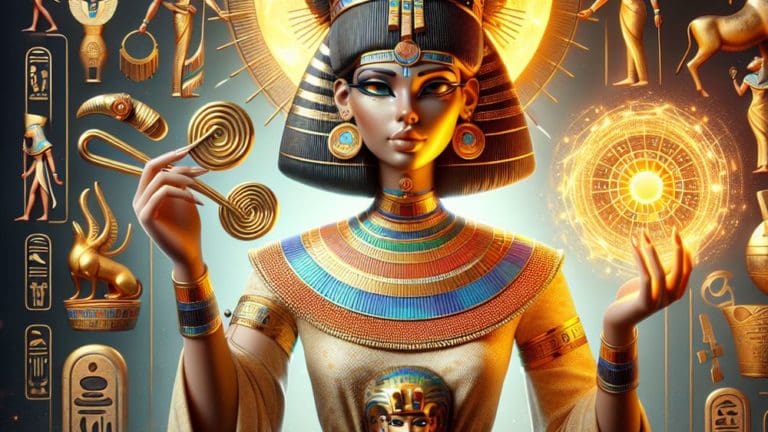Unlock The Mysterious Power Of Egyptian God Shai
Unlock The Mysterious Power Of Egyptian God Shai
Ever wondered who pulled the strings behind the scenes in Ancient Egypt? Let’s dive into the world of the egyptian god Shai, the dude literally in charge of determining your fate. Pretty awesome, right? I’m here to spill the beans on this rather mysterious figure who seemed to have a VIP backstage pass to every aspect of Egyptian life.
Key Points:
- Shai, the Egyptian god of fate, had the power to determine destinies.
- Shai’s role was crucial for maintaining cosmic order and stability in Ancient Egypt.
- Shai influenced both daily life and the afterlife of the ancient Egyptians.
- Shai was depicted with symbols like a notepad or scroll, emphasizing his role in recording fate.
- Shai’s legacy persists in modern times through literature, popular culture, and discussions on fate versus free will.
- Shai’s concept of fate challenges modern notions of autonomy and continues to spark conversations about destiny.
- Shai was not worshipped in temples but acknowledged through personal piety in ancient Egypt.
Now, Shai isn’t your typical mainstream deity with temples at every corner. Nope. This god was more of a behind-the-scenes player, subtly influencing the daily lives and afterlives of the ancient Egyptians. And trust me, uncovering the tales of Shai is like unearthing hidden treasure – it’s super exciting, and I’m all in for this journey.
The Essence of Shai: Unveiling the God of Fate
Shai’s not just any god; he’s the big shot in charge of fate. Imagine having the power to decide how life pans out for every individual – no big deal, right? This section is all about getting up close and personal with Shai. Ready to dive in? Let’s go!
Who is Shai in Egyptian Mythology?
So, who’s this Shai character? In the grand scheme of Egyptian mythology, Shai was quite the unique figure. Unlike other gods and goddesses bustling about with their dramatic tales of power, love, and revenge, Shai had one main gig – determining your fate.
- Shai’s Identity: The personification of fate.
- Main Role: Deciding the destiny of gods and mortals alike.
- Characteristics: Often seen as an impartial force.
- Cool Fact: Considered both a god and a concept.
Yup, it was Shai’s call on how things were going to roll for pretty much everyone. No pressure, right?
Shai is the personification of fate, deciding the destiny of gods and mortals with impartiality and as both a god and a concept.
The Role and Significance of Shai in Ancient Egypt
Shai’s job was a massive deal in Ancient Egypt. Imagine having the responsibility of charting out everybody’s destiny. Shai wasn’t about the glitz and glamour; he was all about ensuring that the cosmic order, or Ma’at, stayed on track. His role was crucial not just for individuals but for the stability of the entire cosmos.
This god of fate influenced everything from how your life on earth would go to what happened in the afterlife. Shai was the unsung hero or, you know, god, making sure everything went according to the divine plan.
Shai’s Influence on Daily Life and the Afterlife
In daily life, having Shai on your side meant you could breathe a little easier knowing your fate was in good hands. Ancient Egyptians believed that honoring Shai and other deities would lead to a more favorable destiny. It was like having a spiritual backstage pass to a smoother life.
When it came to the afterlife, things got even more interesting. Shai wasn’t just chilling in the background; he had a say in how you were judged. Making it through the afterlife with a thumbs-up from Shai basically meant you were living the eternal dream.

Honoring Shai and other deities in daily life can lead to a more favorable destiny and a smoother journey through the afterlife, ultimately ensuring a positive eternal outcome.
The Attributes and Symbols of Shai
Shai might not have been front and center on the ancient Egyptian stage, but he had his fair share of attributes and symbols. Let’s peel back the layers and get a glimpse of this enigmatic figure.
Physical Description and Iconography
In the rare instances Shai was depicted, he had some pretty standard gear for a god. But don’t expect elaborate headpieces or flashy symbols. Shai was more about the essence of fate rather than making a fashion statement.
| Attribute | Description |
|---|---|
| Appearance | Often portrayed as a man recording the fate of the deceased |
| Symbols | A notepad or scroll (yeah, he was the original planner) |
| Iconography | Rarely seen, but when he is, it’s usually in tomb and funerary texts |
Shai’s vibe was more subtle, focusing on his monumental task. But even without the bling, his significance was crystal clear.
Shai’s Family Ties and Mythological Connections
Shai’s place in Egyptian mythology is intriguingly singular.. Unlike many other deities, his family connections are less about blood and more about cosmic function. He stands alone, illustrating the Egyptians’ belief in fate as an individual journey.
Yet, his mythological connections are vast. Shai is often seen in the company of the goddess of writing and measurement, Seshat. This pairing highlights the balance between fate (predestined life events) and the recording or actualization of those events in one’s life.
Interestingly, in some tales, Shai is connected to Renenutet, goddess of nourishment and harvest. This connection underscores the belief that one’s fate could influence the material abundance in their life, linking fate directly with prosperity.

The Powers and Abilities of Shai
Shai’s main gig was determining the fate of Egyptians. Imagine having the power to map out somebody’s life journey. That’s Shai. He didn’t just determine mortals’ destinies; he had a say in how their afterlives would pan out too. Pretty awesome, right?
You have the power to shape your own destiny and influence the direction of your life’s journey.
Shai’s Legacy in Modern Times
Shai’s influence easily ripples into our current era, blending the ancient world with contemporary insights on fate and destiny. People today still find fascination in how our paths are laid out, making Shai as relevant now as he was in ancient times.
Shai in Literature and Popular Culture
In modern literature, Shai’s essence has been creatively reimagined. For instance, in fantasy novels, characters often encounter entities that control their fates, mirroring Shai’s role in Egyptian mythology. These stories bring to life the timeless struggle between free will and predetermined destiny.
Popular culture hasn’t shied away from him either. In movies and TV shows, you might spot references to the Book of Shai, an ancient ledger where each person’s fate is written. This concept has intrigued audiences, drawing parallels to how modern society perceives destiny.
Even video games have dipped into Egyptian mythology, with playable characters wielding powers akin to Shai’s. This not only introduces players to mythological concepts but also lets them experience the potency of fate firsthand.
The Modern Interpretation of Fate and Destiny Through Shai
In the 21st century, Shai’s concept of fate challenges our notions of autonomy. People nowadays ponder whether their choices are truly theirs, or if they’re just following a cosmic script written by a figure like Shai.

Interestingly, this ancient deity has encouraged a modern conversation about the balance between fate and free will. It’s compelled us to reconcile our desires for personal agency with the existence of a predetermined destiny.
How Shai’s Influence Persists in Today’s World
Shai’s legacy lives on in numerous ways:
- In literature, where characters grapple with their fates.
- Through movies and media, which explore destiny’s complex nature.
- In personal beliefs, where many still reflect on fate’s role in their lives.
His concept of fate continues to resonate, showing us that ancient beliefs can aid in understanding our modern experiences.
Embrace the concept of fate as a valuable tool for understanding and navigating your modern experiences.
FAQs
1. How was Shai worshipped in ancient Egypt?
In ancient Egypt, Shai was not worshipped in temples like many other deities. Rather, his presence was acknowledged in daily life and through personal piety.
2. Are there any temples dedicated to Shai?
No temples were dedicated specifically to Shai. Instead, his influence was integrated in the broader religious practices of the ancient Egyptians.
3. How does Shai compare to other gods of fate from different mythologies?
Shai’s unique aspect is his personal connection to each individual’s destiny, unlike many other fate deities who oversee broader concepts. This nuanced role sets him apart.
4. Can Shai’s concept of fate be related to modern-day beliefs?
Shai’s concept of fate can easily be related to modern-day beliefs, especially those that emphasize personal destiny and the power of individual choices.
Conclusion
Diving into the depths of Egyptian mythology and unraveling the mysteries of the Egyptian god Shai has been an extraordinary journey. This dive has revealed how Shai, as the god of fate, played an integral role in the lives of the ancient Egyptians, guiding them through life and into the afterlife.
Shai’s legacy continues to inspire a fascination with ancient beliefs and their relevance in today’s modern context. It makes one ponder the power of destiny and how it shapes our lives. As we close this chapter, I hope you enjoyed unraveling the mysteries of the Egyptian god Shai as much as I did. Catch you on the next mythological adventure!
Warm wishes and curious explorations,
Cedric

